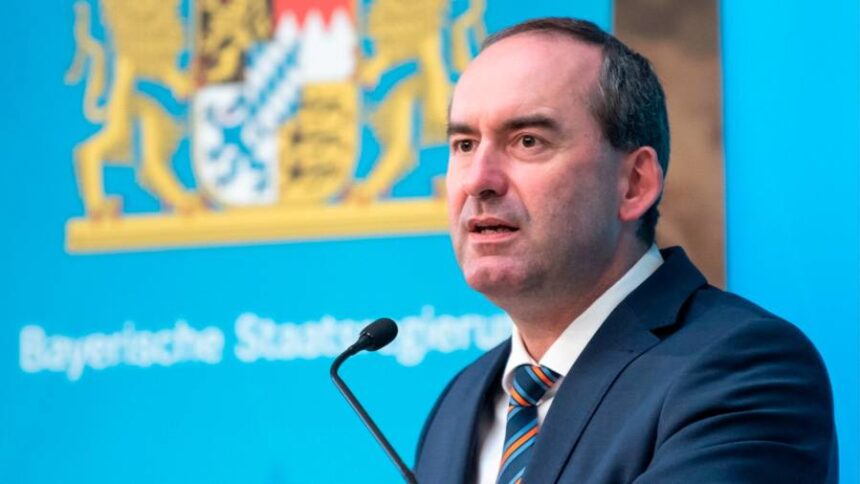Receive free German politics updates
We’ll send you a myFT Daily Digest email rounding up the latest German politics news every morning.
The German chancellor Olaf Scholz has waded into an antisemitism dispute involving a senior minister in the southern state of Bavaria, insisting the scandal should have “political consequences”.
Hubert Aiwanger, Bavaria’s deputy prime minister, has admitted that as a schoolboy he was found in possession of an antisemitic pamphlet containing facetious references to the Holocaust.
He denied authorship of the flyer, which was written in the 1987-8 school year when he was 17.
The document takes the form of a contest to choose the “biggest traitor to the fatherland”, with the first prize on offer a “free flight up the Auschwitz chimney” and the fourth a “one-year stay in Dachau”.
Through his spokesman Wolfgang Büchner, Scholz said the pamphlet affair was “disgusting, regardless of who actually wrote or distributed it”. He described the document itself as “truly horrible”, “showing a real contempt for humanity” and called for the entire incident to be fully investigated.
Scholz also demanded “political consequences”, while adding that the Bavarian government was responsible for any probe into who had composed and circulated the flyer.
The scandal is proving highly embarrassing for Markus Söder, Bavaria’s prime minister and leader of the Christian Social Union, which rules the state in a coalition with Aiwanger’s party, the Free Voters.
Bavaria holds elections on October 8 that Söder’s CSU, at present polling at 39 per cent, is widely expected to win. But if the antisemitism affair escalates, he may be forced to pull the plug on his coalition with the Free Voters and team up instead with the Greens or Social Democrats — a highly unpalatable option for the conservative CSU.
The existence of the pamphlet was first reported by the Süddeutsche Zeitung at the weekend. It said Aiwanger had himself written the flyer and distributed it among his fellow schoolchildren.
Aiwanger later disputed the account, saying in a statement that he was not the pamphlet’s author and considered its contents “disgusting and contemptuous”.
He said “one or a few” copies had been found in his schoolbag but he could “no longer remember” if he had circulated any other copies. Following this, he said, he had been summoned to the headteacher, who punished him by making him write an essay about Adolf Hitler’s Third Reich.
Shortly after Aiwanger issued his statement, his older brother Helmut admitted to having written the pamphlet. “I was furious at the time because I’d failed my school [exams],” he said.
Aiwanger had already sparked controversy with speeches that critics said smacked of Trump-style populism. At a demonstration in the Bavarian town of Erding in June against the government’s plans to replace gas boilers with heat pumps, he said the “silent majority of this country” must “take back democracy”. Many accused him of aping the rhetoric of the far-right Alternative for Germany.
The Bavarian opposition has demanded that Söder dismiss his deputy. “If the accusations prove to be true, there’s no way round it: sack Hubert Aiwanger,” said the Green leaders Katharina Schulze and Ludwig Hartmann.
Charlotte Knobloch, head of the Jewish community of Munich, Bavaria’s capital, said the “mere suspicion that a top politician could be connected to this text is highly dangerous”.
Söder has summoned Aiwanger to an emergency meeting of the coalition committee, a body that deals with conflicts arising between the coalition partners in Bavaria. His chief of staff, Florian Herrmann, said that despite the statement issued over the weekend, there were still a “lot of unanswered questions that only Hubert Aiwanger can personally answer”.








